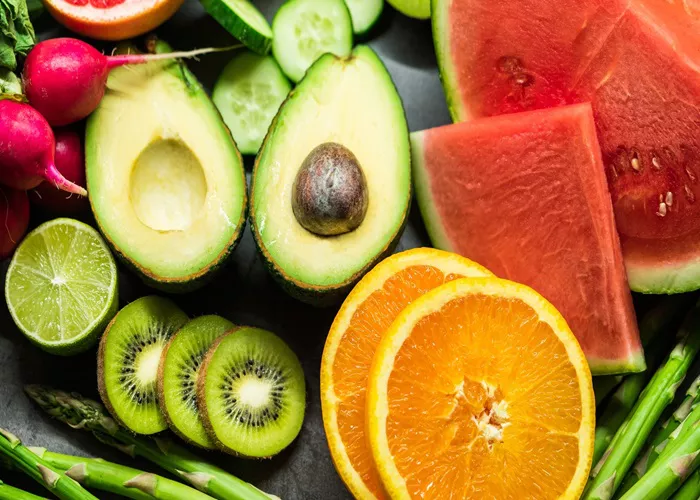As a weight loss expert, I often encounter clients who are confused about what to eat before and after workouts to maximize their fitness gains and support their weight loss journey. The timing and type of food intake around exercise can significantly impact performance, recovery, and overall health. In this article, I’ll demystify the pre- and post-workout nutrition puzzle and provide practical advice to help you fuel your workouts effectively.
Understanding the Importance of Pre- and Post-Workout Nutrition
Pre-Workout Nutrition: Fueling Up for Success
Eating the right foods before a workout can enhance your performance, improve endurance, and prevent fatigue. The goal is to consume a meal or snack that provides a balance of carbohydrates, protein, and healthy fats, while also being easy to digest and not too heavy.
Carbohydrates for Energy: Carbohydrates are the body’s preferred source of energy during exercise. They are broken down into glucose, which powers your muscles. Choosing complex carbohydrates, such as whole grains, vegetables, and fruits, is ideal because they release energy slowly, providing a steady supply to your muscles. Simple carbohydrates, like sugary snacks, can provide a quick burst of energy but may cause a rapid drop in blood sugar levels, leading to fatigue.
Protein for Muscle Repair: Protein is crucial for muscle repair and growth. Consuming a moderate amount of protein before a workout can help prevent muscle breakdown and support muscle synthesis. Good pre-workout protein sources include lean meats, fish, eggs, dairy products, and plant-based proteins like tofu and lentils.
Healthy Fats for Satiety: While fats are not the primary energy source during exercise, they play a vital role in overall nutrition. Eating a small amount of healthy fats, such as nuts, seeds, avocados, or olive oil, can help keep you feeling full and satisfied before your workout. This is especially important if you’re working out on an empty stomach, as fats can help slow down the digestion process and prevent hunger pangs.
Hydration: Don’t forget about hydration. Drinking enough water before a workout is essential to prevent dehydration and ensure optimal performance. Aim to drink at least 2-3 cups of water 2-3 hours before exercising, and consider sipping on a sports drink if your workout will last longer than an hour.
Timing is Key: The timing of your pre-workout meal or snack is crucial. Eating too close to your workout can cause discomfort and interfere with digestion, while eating too far in advance may not provide enough energy. Generally, aim to eat a larger meal 2-4 hours before exercising, or a smaller snack 1-2 hours beforehand.
Post-Workout Nutrition: Recovery and Refueling
After a workout, your body needs nutrients to repair damaged muscles, replenish energy stores, and support overall recovery. The window of opportunity for optimal recovery is relatively short, usually within 30 minutes to an hour after exercise.
Carbohydrates for Glycogen Replenishment: Consuming carbohydrates after a workout helps replenish glycogen stores in the muscles, which are depleted during exercise. Aim for a mix of simple and complex carbohydrates to provide a quick burst of energy followed by sustained release. Good options include fruits, sports drinks, whole grains, and vegetables.
Protein for Muscle Growth: Protein is essential for muscle growth and repair after exercise. Eating a meal or snack rich in protein within 30 minutes to an hour of finishing your workout can help maximize muscle protein synthesis. Good post-workout protein sources include lean meats, fish, eggs, dairy products, and plant-based proteins like beans, lentils, and tofu.
Hydration and Electrolytes: Hydration is critical after workouts, especially if you’ve sweated heavily. Aim to drink at least 16 ounces of water or a sports drink with electrolytes to replenish lost fluids and minerals. Electrolytes like sodium and potassium play essential roles in maintaining fluid balance and muscle function.
Ratio and Quantity: The ratio and quantity of carbohydrates and protein you consume after a workout will depend on your goals. If you’re aiming for muscle growth, a higher ratio of carbohydrates to protein (about 3:1 or 4:1) may be beneficial. If your goal is weight loss, a lower ratio (about 1:1 or 2:1) can help prevent excessive calorie intake while still supporting recovery.
Practical Tips for Pre- and Post-Workout Nutrition
Plan Ahead: Don’t wait until the last minute to prepare your pre- and post-workout meals. Planning ahead can help you make healthier choices and avoid temptation.
Experiment with Different Foods: Everyone’s body is different, and what works for one person may not work for another. Experiment with different foods and combinations to find what works best for you.
Listen to Your Body: Pay attention to how your body feels before, during, and after workouts. If you’re feeling hungry, lightheaded, or fatigued, it may be a sign that you need to adjust your nutrition plan.
Stay Consistent: Consistency is key when it comes to pre- and post-workout nutrition. Try to stick to a routine that supports your fitness goals and overall health.
Conclusion
In conclusion, what you eat before and after workouts can significantly impact your performance, recovery, and weight loss journey. By choosing the right foods and timing your meals appropriately, you can fuel your workouts effectively, support muscle growth and repair, and maintain optimal hydration and nutrition levels. Remember, the key to successful weight loss is a balanced diet, regular exercise, and proper nutrition timing around workouts.
Related topic:


